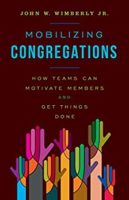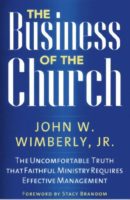
It is no secret that a growing number of clergy are leaving the vocation. In this regard, the church is following trends in the secular world where “The Great Resignation” has been going on since Covid appeared (and probably even before then). Though the trend may be slowing, as articles in the New York Times and elsewhere detail, tens of millions of people in the U.S. have changed jobs over the last two years alone.
For clergy, many factors, including the high stress of the Covid period, drive decisions to leave the profession. Most clergy enjoy interaction with people in general, and their congregants specifically. During Covid, such interaction was limited. Especially for those uncomfortable using technology for virtual conversations and meetings, it was a very tough time, causing many clergy to question their calling.
Technology Is Here to Stay
Covid has helped clergy (and congregations) understand that technology is here to stay. I am so impressed at the speed with which many congregations went virtual with their worship services, governance meetings, etc. But it was a mixed blessing. Many clergy did not go into ministry to manage virtual worship services and go deep into the various hardware and software systems needed to do so. They did go deep; but many didn’t like it. Too many clergy remain resistant to technology in general and specifically to basic tools for ministry such as shared online calendars, Doodle polls to set up meetings, and the almost unlimited potential of office suites from Google, Microsoft and others.
The use of technology has only increased in the post-Covid world. In many congregations, we are more likely to have a team or committee meeting virtually than in person. This limits the spur-of-the-moment personal interactions that so many of us enjoy.
The polarization of our society has taken a serious toll on leaders of all types, including clergy. No matter what we say, from the pulpit or elsewhere, it feels like someone is going to attack us. Preaching has always had a bit of that. But today it has increased to a distressing level. While writing a sermon, one is forced into a defensive mindset: “What will George think about that statement? What will Maria think?” It isn’t a great feeling to wonder if any and every word will produce a hostile reaction from someone.
Standing in Low Esteem
A major reason clergy wonder about our future in the profession may also be that we are no longer held in high esteem. A recent article in Forbes listed the results of a survey of which professions are held in the highest esteem in the U.S.:
- Scientists, farmers and doctors – 83% of people respect these professions
- Firefighters and teachers – 82%
- Nurses – 81%
- Members of the military – 80%
Note who is not listed: clergy. In fact, a 2018 Gallup survey found that only 37% of Americans viewed clergy’s “honesty and ethical standards” as very high or high (with 43% having an “average” view of clergy)–the lowest recorded rating for clergy since Gallup began examining occupations in 1977.
I think the low esteem in which clergy are viewed by people in the U.S. today is a vastly under-estimated factor in the demoralization of clergy today. I had one clergyperson tell me he no longer wears a clergy collar in public unless he must do so for work-related reasons. He said, “I am tired of people making comments or assuming that I may be a pedophile, having an affair with a church member, a financial crook or whatever.” The low esteem in which we are viewed by society puts us in a defensive position.
How Large a Crowd?
Finally–though few clergy like to admit it–most of us enjoy speaking to larger crowds (Why are we reluctant to admit that?). Yes, many of us are masters at small groups. However, Sunday morning worship has a performance aspect to it, despite all the protests that “It isn’t a performance!” As numbers attending Sunday morning have declined dramatically, many who used to prepare sermons for two hundred attendees are now preaching to one hundred or fewer worshippers. I don’t know how that isn’t demoralizing.
Add up all these factors and what I find interesting is not that some clergy are leaving the profession but that most remain! In my next post, I will address the many opportunities we have in the 21st century that keep us in ministry. As a preview, perhaps the most amazing opportunities are provided by the internet. The first Reformation took place, in part, because of a communications and technology breakthrough when the printing press was developed. Today we are witnessing a second Reformation taking place, in part because of an even greater global communications and technology breakthrough: the internet.
Given the challenges of ministry today, I think condemning or judging those who leave ministry is inappropriate and harsh. The game has changed. The ministry people were trained for and experienced for years or decades has morphed into a very different reality. Some of what many clergy wanted to do is no longer possible. As a result, these clergy have every right and even a responsibility to consider whether God is calling them to something else. As people of faith, we mourn their departure but celebrate the opportunities they will have in the world today. As we say in Mexico, where I live: May you go with God (Vayan ustedes con Dios).
John Wimberly is an experienced pastor and consultant. As a consultant, he has worked with congregations and judicatories on strategic planning, staff designs for the 21st century, and congregational growth as well as financial and administrative management. He has MBA, MDiv, and PhD (theology) degrees. His books focus on effective management and leadership. John believes congregations can have a bright future!



